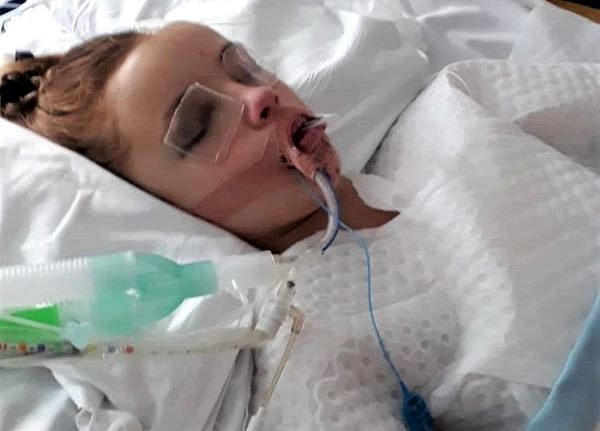Get Healthy!

- Dennis Thompson
- Posted February 20, 2025
U.K. Kids Help Improve Treatment, Rehab For Traumatic Brain Injury
Mia Jack was stealing a glance backward when she lost control of the quadbike she’d been motoring around a family gathering.
Jack, then 12, flew over the handlebars and slammed headfirst into a tree.
“I was wearing a helmet at the time, but apparently my brain was like a jelly in a box that had been really badly shaken, and I was going to be in hospital for some time,” Jack, now 18, recalled in a news release.
The girl from Cambridgeshire in the U.K. was airlifted to a hospital and placed in an induced coma.
She spent more than a week in intensive care, and doctors removed a piece of skull to relieve pressure on her brain.
But Mia’s care and recovery will help inform the treatment of future brain injuries in children.
That’s because she is one of 135 children who were included in a first-ever study of brain injury treatment among patients younger than 16.
The study found that keeping tight control over blood and brain pressure might improve children’s chances of recovery from a traumatic brain injury (TBI), according to results published recently in eClinicalMedicine.
“Understanding the underpinning principles and management of raised intracranial pressure and brain perfusion is essential for reducing the morbidity and mortality of traumatic brain injuries,” lead researcher Dr. Shruti Agrawal, a pediatric trauma doctor at Cambridge University Hospitals, said in a news release.
Most kids included in the study had suffered a blunt head injury, most often due to a traffic crash, researchers said in the study. They were treated at 10 hospitals across the U.K.
Results show that children who didn’t survive their brain injury, or who couldn’t fully recover from it, were more likely to have higher pressure inside their cranium due to fluid buildup.
Doctors better understood a child’s chances by tracking the pressure on their brain using pressure reactivity index (PRx), a calculation that tracks blood pressure and intracranial pressure, researchers concluded.
This is the first large-scale study to test the use of PRx in treating brain injuries among children, researchers said.
“Our results support PRx monitoring with a step towards precision medicine and a potential for fine tuning treatment targets to improve neuro-outcome in pediatric TBI,” the study concluded.
Jack herself has spent six years recovering from her brain injury.
When she eventually woke from her coma, she could not walk or talk.
“When I woke after the accident I was completely confused and didn’t know who mum was, what had happened, and I didn’t understand what was going on,” Jack recalled.
Her recovery was aided by a two-month rehabilitation program at The Children’s Trust in Surrey. There she received physical therapy, speech and language therapy, occupational therapy and hydrotherapy.
As she recovered, Jack began to explore her creative side, playing the piano in a common room. Part of her repertoire included David Guetta’s hit “Titanium,” which she learned in honor of the titanium plate that was fitted over the hole in her skull.
Jack has since returned to school and now is attending Cambridge Regional College, where she is in her second year of a hairdressing course.
She still struggles to come up with words here and there and gets easily tired, but hopes to take performing arts classes next year and pursue her interest in poetry.
"Tiredness can affect me a lot, that's why I have to have a lot of sugary foods," Jack told ITV News Anglia. "My moods can change -- it can be so quick, it's a little bit scary."
“To say it was all a bit of a struggle would be an understatement, but I am a fighter and hope someone else can take inspiration from that,” she concluded.
More information
The National Institutes of Health has more on traumatic brain injury.
SOURCES: National Health Service/NHS Foundation Trust, news release, Feb. 6, 2025; eClinical Medicine, March 2025; ITV Anglia, Feb. 11, 2025






